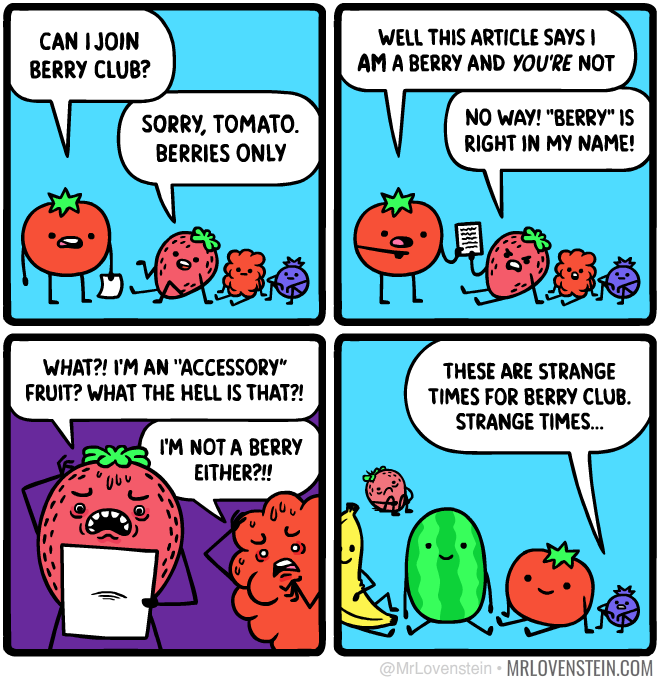The whole fruit/vegetable controversy only comes because we're trying to use two different domains of terms interchangeably: botanical terms and culinary terms.
Tomatoes (and squash, and pumpkins (which, side note, are a type of squash), and cucumbers) are botanically fruits, but culinarily they're most commonly used as vegetables because they tend to be less sweet, particularly when raw. Mushrooms are botanically...well, I guess they're botanically "n/a", as they're not a part of the plantae kingdom, but whatever--they're typically considered botanical, so they're "botanically" fungi, but culinarily they're most commonly used as vegetables (or, interestingly, as meat replacements).
We get into the same linguistic confusion when we start throwing around "peanuts aren't nuts, they're legumes!"--botanically, yes, peanuts are legumes, but culinarily they're most commonly used as nuts. See also: "green beans" are botanically pods, not beans, but we use them culinarily as vegetables; and many "berries" are botanically something else but we use them culinarily as berries; meaning they're often left whole, mixed with other berries in the same dish, and go well with cream in cold summer desserts.
The whole thing is a misguided exercise in pedantry; "technically burritos aren't sandwiches, they're meat-sacks!" They're both, and we instinctively understand that trying to compare the two terms is silly because "sandwich" is a culinary term and "sack" is not.
~~Another funny part of this is that pedants are trying to say that tomatoes are (botanically) fruits and not vegetables, but the closest thing to a definition we have for "vegetable" botanically is "literally all plant life and maybe also some fungi," so tomatoes are clearly both fruit and vegetable botanically.~~ Plus, they're culinarily used as vegetables, but can also be used as fruits in some cakes, pies, sorbets, and so forth (and isn't ketchup just a tomato smoothie?), so tomatoes are clearly both fruit and vegetable in culinary terms as well.
edit: Someone who actually knows what they're talking about (an ecologist) has corrected my botanical definition of "vegetable." Actually, they're “edible parts of a plant which are not fruit.” Which means that tomatoes are explicitly excluded as vegetables, being botanically a fruit. I don't think that ruins my overall point in any way, though.





